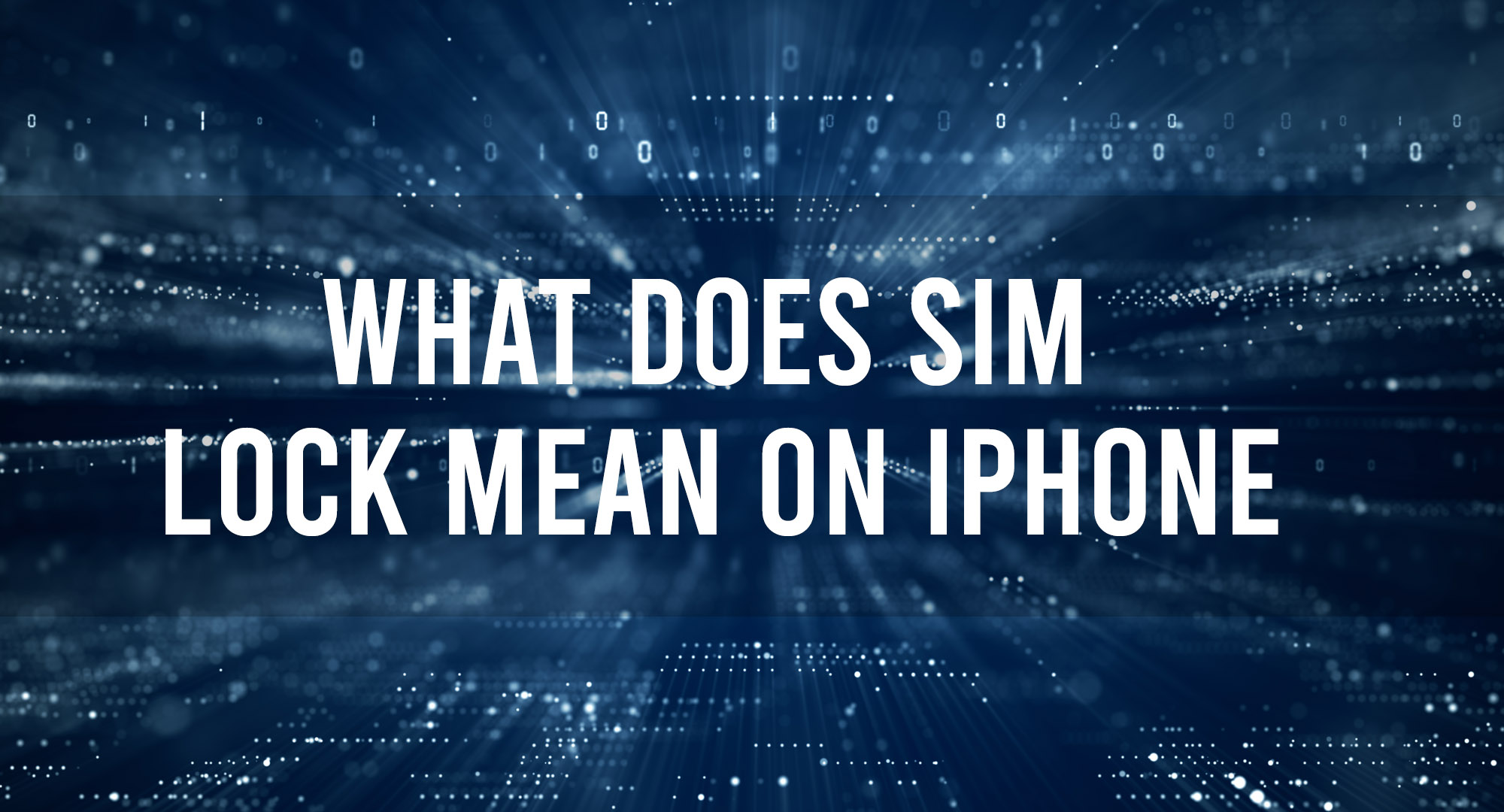When diving into the realm of mobile devices and the telecommunications industry, a term that frequently arises is ‘SIM lock’. Many iPhone users, in particular, encounter this term when they buy a new device or consider switching mobile carriers. This article will elucidate what SIM lock means, particularly concerning the iPhone, its implications, benefits, and methods to unlock.
What is a SIM Lock?
Table of Contents
SIM lock, often termed as network lock or carrier lock, refers to a restriction placed on mobile phones by network providers. A SIM-locked iPhone is tethered to a specific carrier, meaning that the device can only be used with that carrier’s SIM card. In essence, the iPhone ‘locks’ onto a particular SIM card and won’t function with another until the lock is removed.
Why do iPhones get SIM Locked?
Subsidies: The primary reason stems from the business model of carriers. Often, mobile network providers subsidize the cost of phones to attract customers. They might offer iPhones at discounted prices, expecting the buyer to use their network services for a specified period, usually 24 months. The SIM lock ensures customers remain on their network, allowing them to recover the subsidy over time.
Contractual Agreements: Even when not directly subsidizing the device, carriers might offer iPhones under specific contracts. These contracts bind the user to the carrier’s services for a predetermined period.
Implications of SIM Lock
Limited Flexibility: With a SIM-locked iPhone, users can’t just switch to another carrier’s SIM card, even when traveling abroad. This situation might compel them to pay higher roaming fees instead of using a local SIM card.
Resale Value: SIM-locked iPhones typically have a lower resale value compared to unlocked ones. Potential buyers often seek versatility, and an unlocked phone provides that.
Advantages of SIM Lock (For Carriers)
a. Customer Retention: By locking an iPhone to their network, carriers can retain customers for the contract’s duration.
b. Recovering Subsidies: As mentioned, carriers often sell phones at reduced prices expecting the customer to use their services for a certain period. The SIM lock guarantees this, ensuring they recoup their initial subsidy.
Unlocking the iPhone
For users who wish to free their device from the confines of a single network, unlocking becomes an appealing option. There are various ways to unlock an iPhone:
Carrier Unlock: This is the most legitimate method. Once the contract period ends or when certain terms are met, carriers usually offer to unlock the iPhone. Some might do it automatically, while others require a request.
Third-party Services: Numerous online services claim to unlock iPhones for a fee. However, users should exercise caution and conduct thorough research before using such services. Some might be scams or could void the iPhone’s warranty.
Hardware Unlock: This method involves altering the iPhone’s hardware to bypass the SIM lock. It’s a risky approach, potentially damaging the phone and voiding its warranty.
Software Unlock: Earlier iPhone models had vulnerabilities that allowed software-based unlocks. However, Apple has since patched these, and software unlocks have become rarer.
Is Unlocking Legal?
Unlocking a mobile device from its network restrictions is a decision often confronted with both technical and legal considerations. Understanding the legality surrounding this process is crucial not only to avoid potential fines or litigation but also to ensure that you retain the rights and warranties associated with your device. Let’s delve deeper into the legal implications of unlocking your iPhone.
U.S. Perspective on Unlocking:
In the United States, the legal landscape surrounding phone unlocking has shifted over the years. Here’s a breakdown:
1. Digital Millennium Copyright Act (DMCA): Originally, the DMCA prohibited the circumvention of digital locks, which included unlocking mobile phones. However, amendments and rule changes over time have made exceptions for mobile devices.
2. Consumer Choice and Wireless Competition Act: Signed into law in 2014, this act made it legal for consumers to unlock their cell phones, allowing them to switch carriers. However, there are stipulations:
- Contractual Obligations: If you purchased your iPhone under a contract, you are legally bound to fulfill that contract before unlocking the device. Typically, these contracts last two years.
- Financed Phones: For devices bought under financing plans, unlocking is permissible once the device is paid off in full.
3. Carrier Policies: While federal law allows unlocking, individual carriers may have specific policies. Most U.S. carriers will unlock phones upon request, provided that certain conditions are met, such as the device being paid in full or the contract period being over. It’s always advisable to check with your carrier first.
International Perspectives on Unlocking:
The legal status of unlocking varies globally:
1. European Union: In the EU, many countries allow phone unlocking, but the specifics can differ. For example, in France, carriers are required to offer unlocking for free after three months from the purchase date. In the UK, however, unlocking policies vary by carrier, and some may charge a fee.
2. Canada: As of December 2017, the Canadian Radio-television and Telecommunications Commission (CRTC) mandates that all newly purchased cell phones must be sold unlocked. Additionally, carriers are required to unlock previously purchased devices free of charge upon request.
3. Australia: Mobile phone unlocking is legal, but again, carrier policies vary. Some may offer unlocking for free after a certain period, while others might charge a nominal fee.
4. Asia: The legal status varies significantly. Countries like Japan have strict policies, with unlocking only permissible under specific conditions, while others like India have a more relaxed stance, allowing unlocking unless under a binding contract.
While the act of unlocking mobile phones, including iPhones, is moving towards broader legal acceptance, the nuances and specifics can change based on your location and the policies of individual carriers. Always ensure you’re aware of local laws, carrier conditions, and any contractual obligations you may have. If in doubt, reaching out to legal counsel or your service provider can provide clarity. Remember, staying informed is the best way to make decisions that are both beneficial and lawful.
Conclusion
While the concept of SIM lock on iPhones is rooted in carriers’ business strategies, it’s crucial for users to understand its implications, especially if they value flexibility or intend to travel frequently. By understanding what a SIM lock is, users can make informed decisions when purchasing iPhones and considering potential unlocks.

Timothy is a tech enthusiast and has been working in the industry for the past 10 years. He has a vast knowledge when comes to technology and likes to help people with this knowledge.
